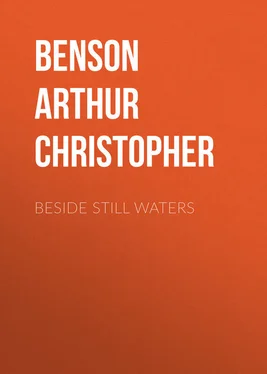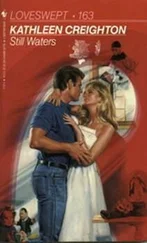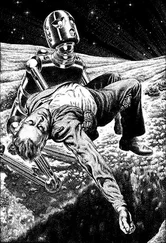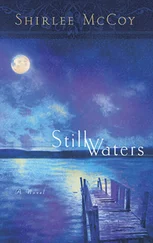Arthur Christopher Benson - Beside Still Waters
Здесь есть возможность читать онлайн «Arthur Christopher Benson - Beside Still Waters» — ознакомительный отрывок электронной книги совершенно бесплатно, а после прочтения отрывка купить полную версию. В некоторых случаях можно слушать аудио, скачать через торрент в формате fb2 и присутствует краткое содержание. ISBN: , Жанр: foreign_antique, foreign_prose, на английском языке. Описание произведения, (предисловие) а так же отзывы посетителей доступны на портале библиотеки ЛибКат.
- Название:Beside Still Waters
- Автор:
- Жанр:
- Год:неизвестен
- ISBN:http://www.gutenberg.org/ebooks/28713
- Рейтинг книги:3 / 5. Голосов: 1
-
Избранное:Добавить в избранное
- Отзывы:
-
Ваша оценка:
- 60
- 1
- 2
- 3
- 4
- 5
Beside Still Waters: краткое содержание, описание и аннотация
Предлагаем к чтению аннотацию, описание, краткое содержание или предисловие (зависит от того, что написал сам автор книги «Beside Still Waters»). Если вы не нашли необходимую информацию о книге — напишите в комментариях, мы постараемся отыскать её.
Beside Still Waters — читать онлайн ознакомительный отрывок
Ниже представлен текст книги, разбитый по страницам. Система сохранения места последней прочитанной страницы, позволяет с удобством читать онлайн бесплатно книгу «Beside Still Waters», без необходимости каждый раз заново искать на чём Вы остановились. Поставьте закладку, и сможете в любой момент перейти на страницу, на которой закончили чтение.
Интервал:
Закладка:
And yet over his thoughts there brooded the shadow of the sad possibilities that lay in wait for him, and of which he had already felt the touch – pain, weariness, a discontented mind, jealousy, despair, and at the end of all death, which closed the prospect whichever way he looked. But if these things too were of the very nature of God, His Will indeed, though obscure and terrible, the only way was in a patient and loving submission, a knowledge that they could not be wholly in vain; and so he resolved that his life should be even so; that he would embrace all opportunities of showing kindness, giving help to others; that he would live a simple life of labour, using his faculties to the uttermost, as God should provide; and that his whole being should be a deliberate prayer that he might do the Will of God as affected himself, without seeking the praise or recognition of men. He foresaw indeed much solitude, much weariness. God had never given him one whom he could unreservedly love, though He had sent him abundance of pure and noble friendships. Quiet dependence upon God, simplicity of life, a readiness to serve, a strenuous use of the gifts given to him; that was the faith in which Hugh, now late in life, and after what profitless squandering of energies, began his pilgrimage.
IX
Art – The End of Art
It seemed strange to Hugh to sit there as he did, in his quiet house beside the stream, with an active professional life behind him, and wonder what the next act would be. His time was now filled with an editorial task which would demand all his energies, or rather a large part of them; but editorial work, however interesting in itself – and the interest of his particular work was great – left one part of the mind unsatisfied; that part of the mind which desired to create some beautiful thing. Hugh's difficulty was this, that he had no very urgent message, to use a dignified word, to deliver to the world. Nowadays, to appeal to the world, it is necessary to do things, it would seem, in rather a strident way, to blow a trumpet, or wave a flag, or command an army, or reform a department of state, or control a railroad. Hugh had neither the power nor the will to write a virile book or a powerful story, or to take imagination captive. He did not wish to head a revolt against anything in particular. The day of the old, grim, sinister tyrannies, he felt, in the western corner of the world, was over, and the kind of tyranny that vexed his spirit was a far more secret and subtle distortion of liberty. It was the rule of conventionality that he desired to destroy, the appetite for luxury, and power, and excitement, and strong sensation. He would have liked to do something to win men back to the joys that were within the reach of all, the joys of peaceful work, and simplicity, and friendship, and quiet hopefulness. These were what seemed to Hugh to be the staple of life, and to be within the reach of so many people. And yet he had no mission. He could only detest the loud voices of the world and its feverish excitements, with all his heart; and on the other hand he loved with increasing contentment the gentler and beautiful background of life, that enacted itself every day in garden and field and wood; the quiet waiting things, the old church seen over orchards and cottage-roofs, the deep pool in the reedy river, dreaming its own quiet dreams, whatever passed in the noisy world. He was sure that those things would bring peace to many weary spirits, if they could but learn to love them.
Artists and musicians, Hugh felt, were the happiest of all people; for they made the beautiful thing that might stand by itself, without need of comment. The graceful boy or girl that they painted, undimmed by age and evil experience, looked down at you from the canvas with a pure and radiant smile, and became as it were a spring of clear water, where a soul might bathe and be clean. Or the picture of some silent woodland place, some lilied pool on a golden summer afternoon – how the peace of it came into the spirit, how it seemed to assure the heart that God loved beauty best, lavishing it with an unwearied hand, even where there could be none to behold it but Himself! Then the musician, – how he wove the airy stuff of sound, so that the pathos of the world, its heavy mysteries, its sunlit joys, started into life, embracing the soul, and bidding it not be faithless or blind. These were the pure gifts of art, the spells before which the dull conventions of the world, its noise and dust, crumbled into the ugly ashes that they really were.
Beside those magical secrets the clumsy art of the writer stood abashed. Those tints, those notes were such definite things; but in the grosser and more tainted medium with which writers dealt, where so much depended upon association and point of view, there was so much less certainty of producing the effect intended, that one faltered and lost faith. One thing was certain, that it was useless to search for a mission; the purpose must descend from heaven, as the eagle pounced on Ganymede, and carry the trembling and awed minister high above the heads of men. But the only thing that the faithful writer could do was to map out some little piece of quiet work, make no vast design, seek for no large sovereignty; and then work patiently on with ever-present enjoyment, learning his art, gaining skill and mastery over his vast and complex instrument, till he gained certainty of touch and the power of saying, with perfect lucidity, with pure transparency of phrase, exactly what he meant; and then, behind his art, to live resolutely in his simple creed, whatever article of it he could master, sure of this, that if his inspiration came, he would be able to present it worthily; and if it did not come – well, his would have been a grave, quiet, gracious life, like the life of a song-bird that had never had an audience, or a stream which dropped in crystal cataracts from unvisited rocks, upon which no gazer's eye had ever fallen. And so there shaped itself what must be for the lover of the beautiful the first article of his faith, the thought that the happiness of art came in the making, the weighing, the disposing, and not in the recognition of the triumph by others; and that the temptation to gain a hearing, to touch hearts, to sway emotions was a natural one enough, but that it must be the first of all to be discarded, as one set foot in the enchanted world, among the dim valleys and rock-ridges, the thickets and the plains, that stretched beyond the sunset and on to the sea's rim, – that wider, more shadowy, more remote world of awe and mystery which lay so near, outside the window, at the opening of a door, at the sound of a voice, the glance of an eye, and in which one's busy fevered life was set, like the print of the wind's footstep in the crisping wave, on the surface of some vast unfathomable sea.
X
Retrospect – Renewal of Youth – The New Energy
In reading biographies of illustrious personages, Hugh was often interested and surprised to compare the pictures of undergraduate life drawn there with his own experience of that period. They were generally related in the form of reminiscences, seen far-off, at the end of a long perspective of years. It was generally represented as a period of high enthusiasm, intense energy, eager work, unclouded happiness. The perception of great problems, noble thoughts, seemed in these reminiscences to have fallen on chivalrous minds with a deep natural joy. They recorded hours of matchless talk, ingenuous debate, brilliant wit, scintillating intellect. Hugh liked to believe that this was the case, but he often wondered whether it was not all heightened by retrospect, and whether the radiance of the whole picture was not merely the radiance of recollected youth. If the picture was a true one, then the later years of the men whose lives were thus told, of whom more than one were known personally to Hugh, must have been years of sad physical and mental decline. There was one person in particular, an eminent ecclesiastic, who had been a frequent guest at his father's house, in whom Hugh had never discovered any particular swiftness of perception, of agility of mind, yet the reminiscences of whose undergraduate years were given in a vein of high enthusiasm. This worthy clergyman had seemed, if his memory was to be trusted, to have been the shining centre of a group whose life threw the life of young Athens, as represented by Plato, into the shade. The man in question seemed, in later years, a sturdily built clergyman, slow and cautious of speech, brusque and even grim of address, sensible, devoted to commonplace activities, and with a due appreciation of the comforts and conveniences of life. His conversation had no suggestiveness or subtlety. He was grumpy in the morning and good-humoured in the evening. He seemed impatient of new ideas, and endowed with a firm grasp of conventional and obvious notions.
Читать дальшеИнтервал:
Закладка:
Похожие книги на «Beside Still Waters»
Представляем Вашему вниманию похожие книги на «Beside Still Waters» списком для выбора. Мы отобрали схожую по названию и смыслу литературу в надежде предоставить читателям больше вариантов отыскать новые, интересные, ещё непрочитанные произведения.
Обсуждение, отзывы о книге «Beside Still Waters» и просто собственные мнения читателей. Оставьте ваши комментарии, напишите, что Вы думаете о произведении, его смысле или главных героях. Укажите что конкретно понравилось, а что нет, и почему Вы так считаете.












